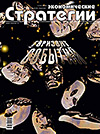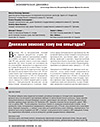Money Issue: to Whom It Is Unprofitable?
Russian liberals again propose to pull the Russian economy out of stagnation by freezing the money supply as a tool for inflation targeting under the precepts of the Washington Consensus. However, the practice of overcoming the past crisis situations shows us a different lesson. The policy of money pumping through the efforts of reasonable practitioners. E.M. Primakov and V.V. Gerashchenko allowed quickly to overcome the 1998 default, but from the crisis of 2008 Russia was coming out much heavier and with huge economic losses, as the country leaders consistently adhered to liberal dogmas. In Russia, when the money supply grew significantly, inflation contracted, and vice versa, when the growth rate of the money supply fell sharply, inflation grew. The money growth always precedes the growth of GDP, and vice versa, when the money supply shrinks, GDP decreases. And there is a theoretical justification for this, but it does not coinside with the fundamental liberalism dogmas.
References:
- Arrigi Dzh. Dolgiy ХХ vek: den’gi, vlast’ i istoki nashego vremeni [Long Twentieth Century: Money, Power and the Origins of Our Time]. Moscow, Izdatel’skiy dom “Territoriya budushchego”, 2006.
- Ayvazov A.E., Belikov V.A. Matritsa industrial’noy tsivilizatsionnoy volny [Matrix of the Industrial Civilization Wave]. Sotsial’no-ekonomicheskie problemy sovremennosti: poiski mezhdistsiplinarnykh resheniy [Socio-Economic Problems of Our Time: Searching for Interdisciplinary Solutions]. Sb. nauchnykh trudov uchastnikov Mezhdunarodnoy konferentsii “XXIV Kondrat’evskie chteniya” [XXIV Kondratiev Readings]. Pod redaktsiey V.M. Bondarenko. Moscow, MOOSIPNN N.D. Kondrat’eva, 2017, pp. 19–26.
- Ayvazov A.E. Perspektivy i strategicheskie prioritety voskhozhdeniya BRIKS [Prospects and Strategic Priorities of the BRICS Ascent]. Nauch. Doklad k VII sammitu BRIKS . Razdel 2.3. Pod redaktsiey V.A. Sadovnichego, Yu.V. Yakovtsa, A.A. Akaeva. Moscow, MISK — INES — NKI BRIKS, 2014, pp. 137–139.
- Filatov S., Sommers Dzh. Chto zhdet mirovuyu ekonomiku? [What Awaits the Global Economy?]. Polyus mira, 2013, July, 29, available at: http://forum.polismi.org/index.php?/topic/6141 (28.04.2017).
- Ajvazov A. Inequality and the USA Economy. World Affairs, vol. 17, no 2 (April – June) summer 2013, pp. 124–140.
- Khuffshmid Y. Krizis upravlyaemogo finansovym rynkom kapitalizma [Crisis of Managed by Financial Market Capitalism]. Moscow Economic Forum, available at: http://me-forum.ru/upload/iblock/433/433efb2e0b8803e346476967d800f5a4.pdf.
- Huffschmid J. Kritik der Lissabon-Strategie. Universitet Bremen, available at: http://www-user.uniremen.de/~huffschm/docs2009/LIssabon-Strategie25-4-07.pdf.
- Gelbreyt Dzh.K. Velikiy krakh 1929 goda [The Great Crash of 1929]. Minsk, Popurri, 2009.
- Arrigi Dzh. Adam Smit v Pekine [Adam Smith in Beijing]. Moscow, Institut obshchestvennogo proektirovaniya, 2009.
- Kobyakov A. Drakon, orel i medved’ [Dragon, Eagle and Bear]. Izborskiy klub, 2016, no 6–7 (42–43), pp. 54–71.
- Egishyants S. Tupiki globalizatsii: Torzhestvo Progressa ili Igry satanistov? [Globalization Deadlocks: the Triumph of Progress or the Satanists’ Games?]. Moscow, Veche, 2004.
- Grinin L.E., Korotaev A.V. Tsikly, krizisy, lovushki sovremennoy mir-sistemy [Cycles, Crises, Traps of the Modern World-System]. Moscow, Izdatel’stvo LKI, 2012.
- Grinin L.E., Korotaev A.V., Tsirel’ S.V. Tsikly razvitiya sovremennoy mir-sistemy [Development Cycles of the Modern World-System.]. Moscow, Izdatel’stvo LKI, 2011.
- Grinin L.E., Korotaev A.V., Gladkikh A.V. Kondrat’evskie volny. Dlinnye i srednesrochnye tsikl [Kondratiev Waves. Long and Medium-Term Cycles]. Ezhegodnik. Pod redaktsiey L.E. Grinina, A.V. Korotaeva. Volgograd, Uchitel’, 2014.
- Blinov S. Oshibka doktora Kudrina [The Mistake of Dr. Kudrin]. Ekspert online. 2015, available at: http://expert.ru/2015/04/29/oshibka-doktora-kudrina.
- Anton Siluanov: smena vekh [Anton Siluanov: Change of Landmarks]. Livejournal, 2017, March, 11, available at: http://senib.livejournal.com/11463.html.
- Ayvazov A.E., Belikov V.A. Ekonomicheskie osnovy miroustroystva [The World Order Economic Foundations]. Ekonomicheskie strategii, 2017, no 2, pp. 156–167.
- Ayvazov A.E., Belikov V.A. Formirovanie integral’nogo mirokhozyaystvennogo uklada — budushchee mirovoy ekonomiki [Formation of an Integrated World Economic Structure — the World Economy Future]. Ekonomicheskie nauki sovremennoy Rossii, 2017, no 1 (76), pp. 7–21.
- Glaz’ev S.Yu. O neotlozhnykh merakh po ukrepleniyu ekonomicheskoy bezopasnosti Rossii i vyvodu rossiyskoy ekonomiki na traektoriyu operezhayushchego razvitiya [About Urgent Measures on Strengthening the Economic Security of Russia and Bringing the Russian Economy on the Path of Advanced Development]. Doklad. Moscow, Institut ekonomicheskikh strategiy, Russkiy biograficheskiy institut, 2015.
- Glaz’ev S.Yu. Ekonomika budushchego. Est’ li u Rossii shans? [Economy of the Future. Has Russia Got a Chance?]. Moscow, Knizhnyy mir, 2016.



